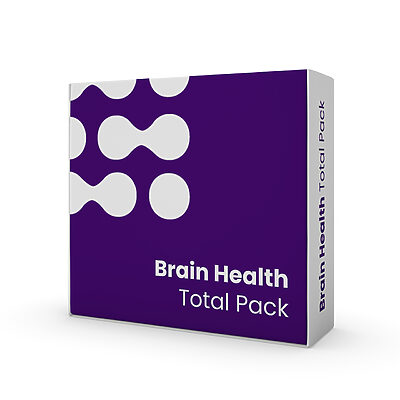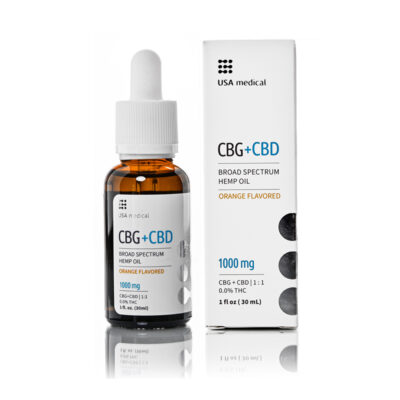
What Is CBG Oil?
If you’re looking for a comprehensive, natural solution to tackle inflammation and its debilitating effects, you’re in the right place. Welcome to the new era

Maintaining healthy blood sugar levels is crucial for overall health and well-being. High blood sugar levels can lead to various health complications, including diabetes, heart disease, and nerve damage.
Fortunately, there are several ways to lower your blood sugar naturally. This article will discuss six practical strategies for managing your blood sugar, including exercise, diet, hydration, stress management, sleep, and supplements. We’ll also explore the benefits of maintaining healthy blood sugar levels and highlight the published research that supports the effectiveness of these strategies.
Whether at risk for high blood sugar levels or simply looking to improve your overall health, these tips can help you take control of your blood sugar and feel your best.
Exercise is a powerful tool for managing blood sugar levels. When you exercise, your muscles use glucose for energy, which helps to lower blood sugar levels. Regular exercise can also improve insulin sensitivity, making it easier for your body to use insulin effectively.
Examples of exercises that are effective for lowering blood sugar levels include:
It’s important to note that the intensity and duration of exercise can have an impact on blood sugar levels. Some people with diabetes may need to monitor their blood sugar levels before and after exercise to determine the appropriate intensity and duration for their individual needs.
In addition to its blood sugar-lowering effects, exercise has a range of other health benefits, including:
Several studies have demonstrated the blood sugar-lowering effects of exercise. For example, a study published in the Journal of Diabetes Research found that 30 minutes of moderate-intensity exercise, such as brisk walking, significantly lowered blood sugar levels in people with type 2 diabetes. Another study published in the Annals of Internal Medicine found that a combination of aerobic and resistance training was more effective at lowering HbA1c levels (a marker of blood sugar control) than either type of exercise alone.
Regular exercise is an effective and important tool to lower your blood sugar naturally. Whether you prefer aerobic exercise, resistance training, or HIIT, incorporating exercise into your daily routine can help you maintain healthy blood sugar levels and improve your overall health and well-being.
Diet plays a crucial role in managing blood sugar levels. Certain foods can help lower blood sugar levels, while others can cause them to spike. Generally, a healthy diet for controlling blood sugar should be high in fiber and low in refined carbohydrates and added sugars.
Foods that can help lower blood sugar levels include:
Foods that should be limited or avoided include:
In addition to its blood sugar-lowering effects, a healthy diet has a range of other health benefits, including:
Several studies have demonstrated the blood sugar-lowering effects of a healthy diet. A study published in the American Journal of Clinical Nutrition found that a diet rich in whole grains significantly improved insulin sensitivity in overweight and obese adults. Another study published found that a diet high in fruits, vegetables, and whole grains was associated with a lower risk of developing type 2 diabetes.
Staying hydrated is essential for managing blood sugar levels. When you’re dehydrated, your body produces more cortisol and glucagon, two hormones that can cause blood sugar levels to rise. Additionally, drinking water can help flush excess glucose out of the bloodstream.
Aim to drink at least 12 cups (100 ounces) of water per day or more if you’re physically active or live in a hot climate to stay hydrated and regulate your blood sugar levels.
In addition to its blood sugar-lowering effects, staying hydrated has a range of other health benefits, including:
Several studies have indicated that staying hydrated can help regulate blood sugar levels. For instance, a study published in the Journal of Clinical Endocrinology & Metabolism showed that drinking water before a meal could decrease blood sugar levels in people with type 2 diabetes.
In addition, another study revealed that drinking water during exercise could reduce blood sugar spikes in people with type 1 diabetes. These findings suggest that maintaining adequate hydration can play a role in managing blood sugar levels, particularly in people with diabetes.
Staying hydrated is a simple but effective way to manage blood sugar levels naturally.
Stress can have a significant impact on blood sugar levels. When you’re under pressure, your body produces hormones like cortisol and adrenaline, which can cause blood sugar levels to rise. Learning to manage stress effectively can help regulate blood sugar levels and improve overall health.
There are many stress-reducing techniques you can try, including:
It’s important to find stress management techniques that work for you and make them a part of your daily routine.
In addition to its blood sugar-lowering effects, effective stress management has a range of other health benefits, including:
Research has shown that stress management techniques can have a significant impact on how to lower your blood sugar naturally. A study published in the Journal of Psychosomatic Research revealed that mindfulness meditation helped reduce HbA1c levels (a marker of blood sugar control) in individuals with type 2 diabetes.
Additionally, a study published in the Journal of Alternative and Complementary Medicine found that yoga was effective at improving blood sugar control in people with type 2 diabetes.
These findings underscore the importance of incorporating stress management techniques like mindfulness meditation, yoga, and deep breathing exercises into your daily routine as a natural approach to managing blood sugar levels and promoting overall health and well-being.
Getting enough sleep is essential for maintaining healthy blood sugar levels. When you’re sleep-deprived, your body produces more cortisol and other stress hormones, which can cause blood sugar levels to rise. Additionally, sleep deprivation can affect insulin sensitivity, making it harder for your body to regulate blood sugar levels.
To promote healthy blood sugar levels, aim to get 7-9 hours of sleep each night. Additionally, establishing a consistent sleep schedule and creating a relaxing bedtime routine can help improve the quality of your sleep.
In addition to its blood sugar-lowering effects, getting enough sleep has a range of other health benefits, including:
Several studies have demonstrated the blood sugar-lowering effects of getting enough sleep. A study published found that getting enough sleep was associated with better blood sugar control in people with type 2 diabetes. Another study published in PLOS Medicine found that short sleep duration was associated with an increased risk of developing type 2 diabetes.
Getting enough sleep is a crucial component of maintaining healthy blood sugar levels. Aiming to get 7-9 hours of sleep each night, establishing a consistent sleep schedule, and creating a relaxing bedtime routine can help regulate blood sugar levels, improve cognitive function, and promote overall health.
Some supplements have been shown to have blood sugar-lowering effects and may be beneficial for people with diabetes or prediabetes. It’s important to note that supplements should not be used as a substitute for other natural approaches to managing blood sugar, such as exercise, diet, and stress management. Instead, supplements should be used in conjunction with these other strategies.
Some supplements that have been shown to have blood sugar-lowering effects include:
In addition to their blood sugar-lowering effects, some supplements have a range of other health benefits, including:
Research has indicated that certain supplements can help lower blood sugar levels in people with diabetes or prediabetes. For instance, a study published in the Journal of the Academy of Nutrition and Dietetics demonstrated that cinnamon supplements could improve blood sugar control in people with type 2 diabetes.
However, it’s important to note that supplements should not be considered a replacement for other natural approaches to managing blood sugar, such as exercise, diet, and stress management. They should be used accordingly alongside other ways to lower your blood sugar naturally.
Managing blood sugar levels is essential for maintaining overall health and preventing the onset of chronic diseases such as diabetes, heart disease, and obesity.
While various medications are available to help manage blood sugar levels, there are also many natural approaches that can be just as effective, if not more so. Incorporating regular exercise, a healthy diet, hydration, stress management, adequate sleep, and supplements into your daily routine can help regulate blood sugar levels and promote overall health and well-being.
If you have diabetes or prediabetes, it’s crucial to work with a healthcare professional to develop an individualized plan for managing your blood sugar levels. However, even if you don’t have diabetes, incorporating these natural approaches into your lifestyle can help lower your risk of developing the condition and improve your overall health.
By making small, manageable changes to your daily routine, you can take control of your blood sugar levels and optimize your health for years to come.

In stock | Free shipping

In stock | Free shipping

In stock | Free shipping

In stock | Free shipping
These statements have not been evaluated by the Food and Drug Administration. These products/services are not intended to diagnose, treat, cure, or prevent any disease.

If you’re looking for a comprehensive, natural solution to tackle inflammation and its debilitating effects, you’re in the right place. Welcome to the new era

The Invisible Enemy Within You wake up feeling groggy, your joints ache, and that old neck pain seems to have returned. No, it’s not just

CBG oil has been creating waves in the health and wellness industry, and for good reasons. But with any health trend, it’s crucial to separate

In stock | Free shipping

In stock | Free shipping

In stock | Free shipping

In stock | Free shipping

In stock | Free shipping

In stock | Free shipping

In stock | Free shipping

FREE SHIPPING & DELIVERY INSURANCE
Enjoy free ground shipping and free delivery insurance on all orders! Spend $150+ to unlock free 2-Day Air shipping.

24/7 EXPERT SUPPORT
Text (323) 352-9131 anytime for help from one of our USA Medical experts. We’re here for you!

Get your first-time coupon!
This coupon has no restrictions on your first purchase, you can use it for anything at USA Medical!

Join the USA Medical Family!
Get access to exclusive offers and free giveaways in our private Facebook group.
These statements have not been evaluated by the Food and Drug Administration. USA Medical products are not intended to diagnose, treat, cure, or prevent any diseases. Individual results may vary.
This site is protected by reCAPTCHA and the Google Privacy Policy & Terms of Service apply.
© USA Medical, 2025. All rights reserved.

In stock | Free shipping

In stock | Free shipping

In stock | Free shipping

In stock | Free shipping

In stock | Free shipping

In stock | Free shipping

In stock | Free shipping

In stock | Free shipping